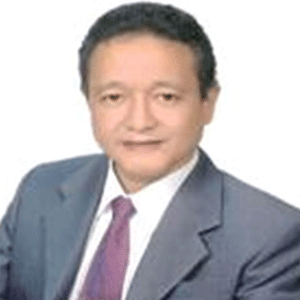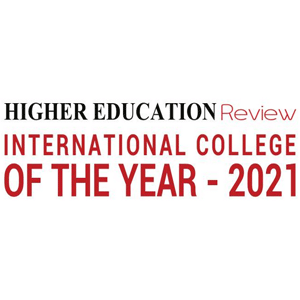
Cebu Institute of Technology University: A Top Academic Institution Developing Values-Driven, Highly Competent, And Innovative Technologians
With a culture and history spanning 75 years, Cebu Institute of Technology University (CIT) is a government-recognized academic institution in The Philippines. Private and non-sectarian, CIT was set up with the mission to ensure quality instruction, research, and community extension for the total development of Technologians committed in practicing professionalism and in meeting the demands of local, national, and global communities.
While engineering was one of the first few programs to be offered by the institution, other programs were developed and built upon the successes of the engineering programs. Today, the curricular offerings of the University are diverse involving a wide array of programs in engineering and architecture, computer science and information technology, teacher education, liberal arts, pure sciences, business and management, accountancy, public administration, nursing, pharmacy, and criminology, among others.
The majority of the programs at CIT University are accredited by the Philippine Association of Colleges and Universities (PACUCOA) under the umbrella of the Federation of Accrediting Agencies of the Philippines (FAAP) which is also a member of The International Network for Quality Assurance Agencies in Higher Education (INQAAHE)- a world-wide association of 300+ organizations active in the theory and practice of quality assurance in higher education. Adding to this, the University stands tall among less than 4% of the country's higher education institutions acknowledged by the country's Commission on Higher Education as an Autonomous University.
The Philippines has a long history of friendship with India. Even before the Spanish colonial era, Indian traders regularly come to the Philippine archipelago to do business. Students studying at Cebu Institute of Technology shall be valued for the rich national culture that Indian and international students will bring to the country and the University. International students' immersion in the university provides a strong potential in enhancing and enriching cultural diversity. Talented Indians shall be welcomed at adding dynamism to the scholarly endeavors of the University.
In comparison with other educational institutions in the Philippines, CIT University features conformant with the ASEAN Qualifications, yet, at a cost that is markedly lower. International students undergo the rigors of higher education sustained by modern urban living while being at arms-reach with the sunny island tourism hubs. In general, the cost of living is affordable. Low-priced dormitories are available around the campus, and all destinations in Cebu Island are accessible by inexpensive transportation. In Cebu, the shopping destinations are some of the best in the ASEAN.
Filipino and international cuisine of low prices are in abundance; the people are not only world-renown for hospitality and friendliness but also can converse in understandable English since the Philippines is a former American colony with education institutions using English as the medium of instruction. Moreover, international students enjoy an inclusive culture that is welcoming all races, religions, cultures, gender, and the entire gamut of human diversity.
Owing to the diverse range of courses offered by Cebu Institute of Technology University, International students are bound to experience the University's award-winning indigenously developed learning framework referred to as MADE 4 Learners, a framework that defines the various teaching-learning modalities in both in-person and remote synchronous and asynchronous engagements or a combination thereof. MADE 2 SUCCEED is a component of MADE4 Learners that enables learning SUCCESS of students through a flexible learning platform in a safe and secure environment. At CIT University, the US model of Outcomes-Based Education is also referred to as an all-encompassing framework, and English is used in administrative transactions and as the medium of instruction.
Using Outcomes Based Education and the CIT University MADE 4 Learners Framework, the teacher is facilitator, coach, and mentor within a student-tailored delivery system guided by regularly reviewed Course Learning Outcomes in a safe and inclusive learning environment. Teachers engage with learners in synchronous teaching-learning processes and guide students in the asynchronous, self-directed physical-digital Learning Management System (Wildcats LAIR). The IKIGAI Center (a student success center) and Peer Mentoring Center provide mentoring and tutorial services and scaffold career development for career starters. Also, the University essentially initiates and supports co-curricular and extra-curricular activities deliberately designed for the holistic development of students. Adding to these, CIT University has formal internship agreements with 923 industrial partners for professional On-the-Job Training Faculty and the Networking and Linkages Offices that facilitate the placement of student trainees.
A safe campus that supports an inclusive culture welcoming of all races, religions, cultures, genders, and the wider range of human diversity, Cebu Institute of Technology University would most likely become the students' second home. For future international students, the university assures them that they can obtain an education at a reasonable cost with immersive learning in English communication while enjoying a student experience of quality lifestyle.
While engineering was one of the first few programs to be offered by the institution, other programs were developed and built upon the successes of the engineering programs. Today, the curricular offerings of the University are diverse involving a wide array of programs in engineering and architecture, computer science and information technology, teacher education, liberal arts, pure sciences, business and management, accountancy, public administration, nursing, pharmacy, and criminology, among others.
The majority of the programs at CIT University are accredited by the Philippine Association of Colleges and Universities (PACUCOA) under the umbrella of the Federation of Accrediting Agencies of the Philippines (FAAP) which is also a member of The International Network for Quality Assurance Agencies in Higher Education (INQAAHE)- a world-wide association of 300+ organizations active in the theory and practice of quality assurance in higher education. Adding to this, the University stands tall among less than 4% of the country's higher education institutions acknowledged by the country's Commission on Higher Education as an Autonomous University.
Opening Doors of Opportunity for Indian and other International Students
The Philippines has a long history of friendship with India. Even before the Spanish colonial era, Indian traders regularly come to the Philippine archipelago to do business. Students studying at Cebu Institute of Technology shall be valued for the rich national culture that Indian and international students will bring to the country and the University. International students' immersion in the university provides a strong potential in enhancing and enriching cultural diversity. Talented Indians shall be welcomed at adding dynamism to the scholarly endeavors of the University.
“Cit university has formal internship agreements with 923 industrial partners for professional on-the-job training faculty and the networking and linkages offices that facilitate the placement of student trainees”
In comparison with other educational institutions in the Philippines, CIT University features conformant with the ASEAN Qualifications, yet, at a cost that is markedly lower. International students undergo the rigors of higher education sustained by modern urban living while being at arms-reach with the sunny island tourism hubs. In general, the cost of living is affordable. Low-priced dormitories are available around the campus, and all destinations in Cebu Island are accessible by inexpensive transportation. In Cebu, the shopping destinations are some of the best in the ASEAN.
Filipino and international cuisine of low prices are in abundance; the people are not only world-renown for hospitality and friendliness but also can converse in understandable English since the Philippines is a former American colony with education institutions using English as the medium of instruction. Moreover, international students enjoy an inclusive culture that is welcoming all races, religions, cultures, gender, and the entire gamut of human diversity.
A Step Ahead of Other Higher Education Institutions
Owing to the diverse range of courses offered by Cebu Institute of Technology University, International students are bound to experience the University's award-winning indigenously developed learning framework referred to as MADE 4 Learners, a framework that defines the various teaching-learning modalities in both in-person and remote synchronous and asynchronous engagements or a combination thereof. MADE 2 SUCCEED is a component of MADE4 Learners that enables learning SUCCESS of students through a flexible learning platform in a safe and secure environment. At CIT University, the US model of Outcomes-Based Education is also referred to as an all-encompassing framework, and English is used in administrative transactions and as the medium of instruction.
Using Outcomes Based Education and the CIT University MADE 4 Learners Framework, the teacher is facilitator, coach, and mentor within a student-tailored delivery system guided by regularly reviewed Course Learning Outcomes in a safe and inclusive learning environment. Teachers engage with learners in synchronous teaching-learning processes and guide students in the asynchronous, self-directed physical-digital Learning Management System (Wildcats LAIR). The IKIGAI Center (a student success center) and Peer Mentoring Center provide mentoring and tutorial services and scaffold career development for career starters. Also, the University essentially initiates and supports co-curricular and extra-curricular activities deliberately designed for the holistic development of students. Adding to these, CIT University has formal internship agreements with 923 industrial partners for professional On-the-Job Training Faculty and the Networking and Linkages Offices that facilitate the placement of student trainees.
A safe campus that supports an inclusive culture welcoming of all races, religions, cultures, genders, and the wider range of human diversity, Cebu Institute of Technology University would most likely become the students' second home. For future international students, the university assures them that they can obtain an education at a reasonable cost with immersive learning in English communication while enjoying a student experience of quality lifestyle.

